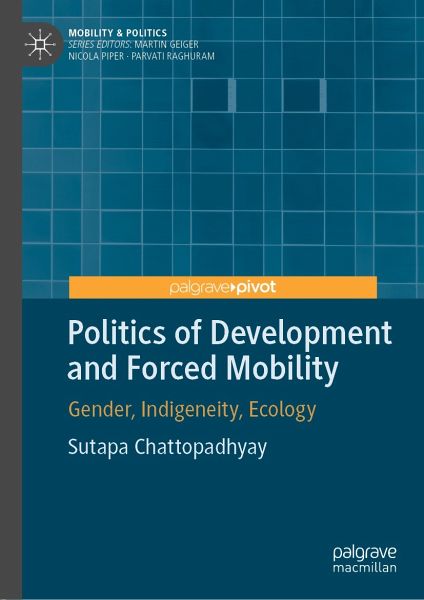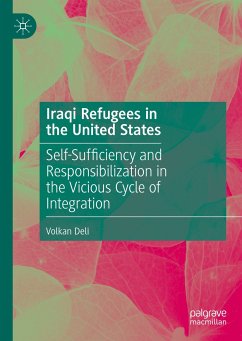
Sutapa Chattopadhyay
eBook, PDF
Politics of Development and Forced Mobility (eBook, PDF)
Gender, Indigeneity, Ecology

PAYBACK Punkte
22 °P sammeln!





Politics of Development and Forced Mobility (eBook, PDF)
Dieser Download kann aus rechtlichen Gründen nur mit Rechnungsadresse in A, B, BG, CY, CZ, D, DK, EW, E, FIN, F, GR, HR, H, IRL, I, LT, L, LR, M, NL, PL, P, R, S, SLO, SK ausgeliefert werden.
Sutapa Chattopadhyay is Assistant Professor in Women's and Gender Studies and Development Studies programs at St. Francis Xavier University, Canada. Her areas of interest are gender, migrations, development justice, social movements, political ecology and Indigeneity. Currently she pursues research on migrant incarceration, borders, and autonomy in Rome, Italy. She also continues to write on Indigeneity, food sovereignty, emancipatory politics, and development justice. She has lectured in many universities and research institutes across North America and Europe. She is an editor of Interface and on the advisory board of ACME. She has published in Interface; ACME; Gender, Place and Culture; Population, Place and Space; Environment and Planning D; Geopolitics; and Capitalism Nature Socialism on Indigenous anti-colonial struggles, development-induced dislocation, colonial and post-colonial appropriation of bodies and nature, anarch/eco-feminist pedagogies, feminist research methodologies, migrant agency, and border politics. She is co-editor of Migration, Squatting and Radical Autonomy (with P. Mudu, 2017). Along the way, she has volunteered in homeless youth shelters, migrant students/women's centers, union, and variously reviewed and supervised students' writing projects. As a teacher and researcher in Development, Feminism, and Geography, her objective is to get educated on how and why the world has been organized the way it is and how can she contribute to transforming the world to a better and equitable place that offers respect to all.
Produktdetails
- Verlag: Springer Nature Switzerland
- Seitenzahl: 158
- Erscheinungstermin: 6. Mai 2022
- Englisch
- ISBN-13: 9783030939014
- Artikelnr.: 63975431
Für dieses Produkt wurde noch keine Bewertung abgegeben. Wir würden uns sehr freuen, wenn du die erste Bewertung schreibst!
Eine Bewertung schreiben
Eine Bewertung schreiben
Andere Kunden interessierten sich für











